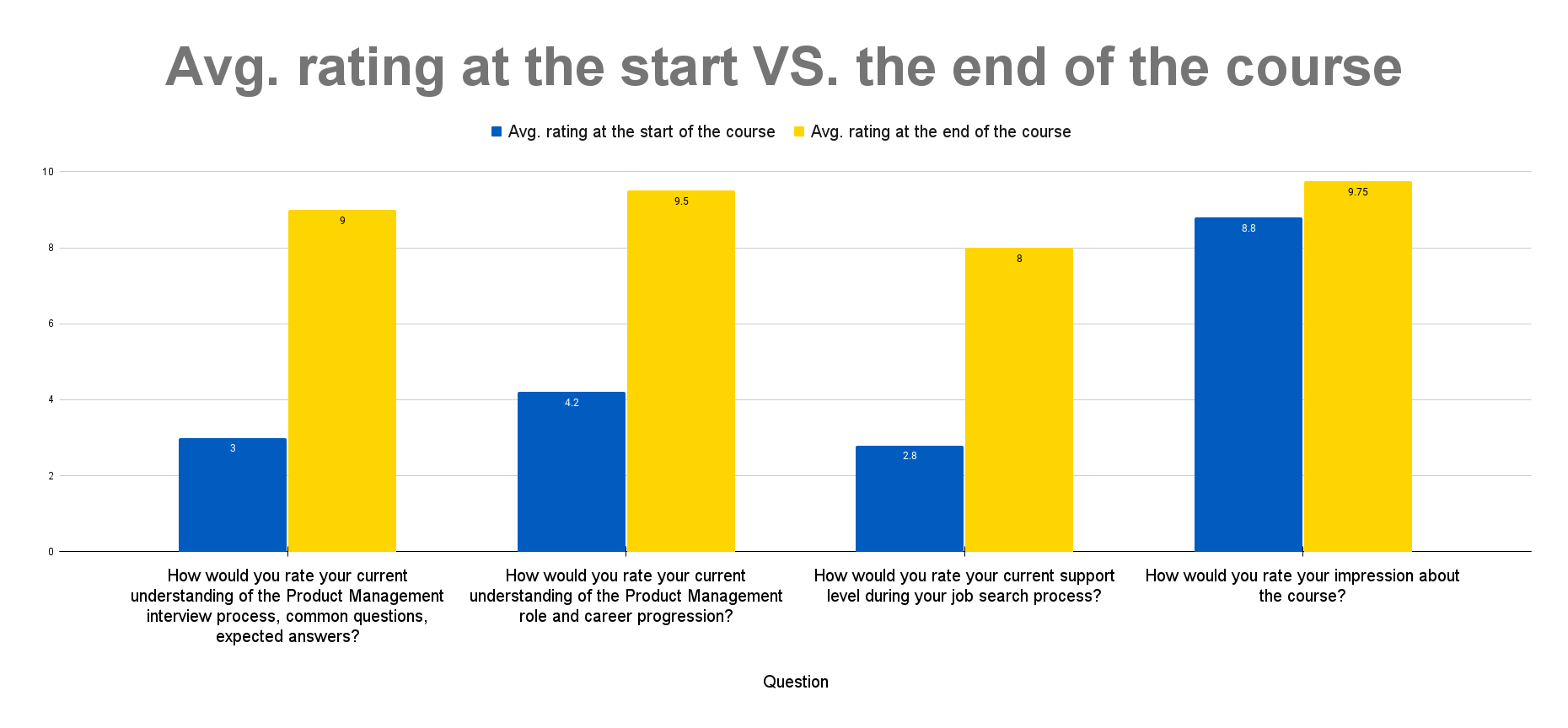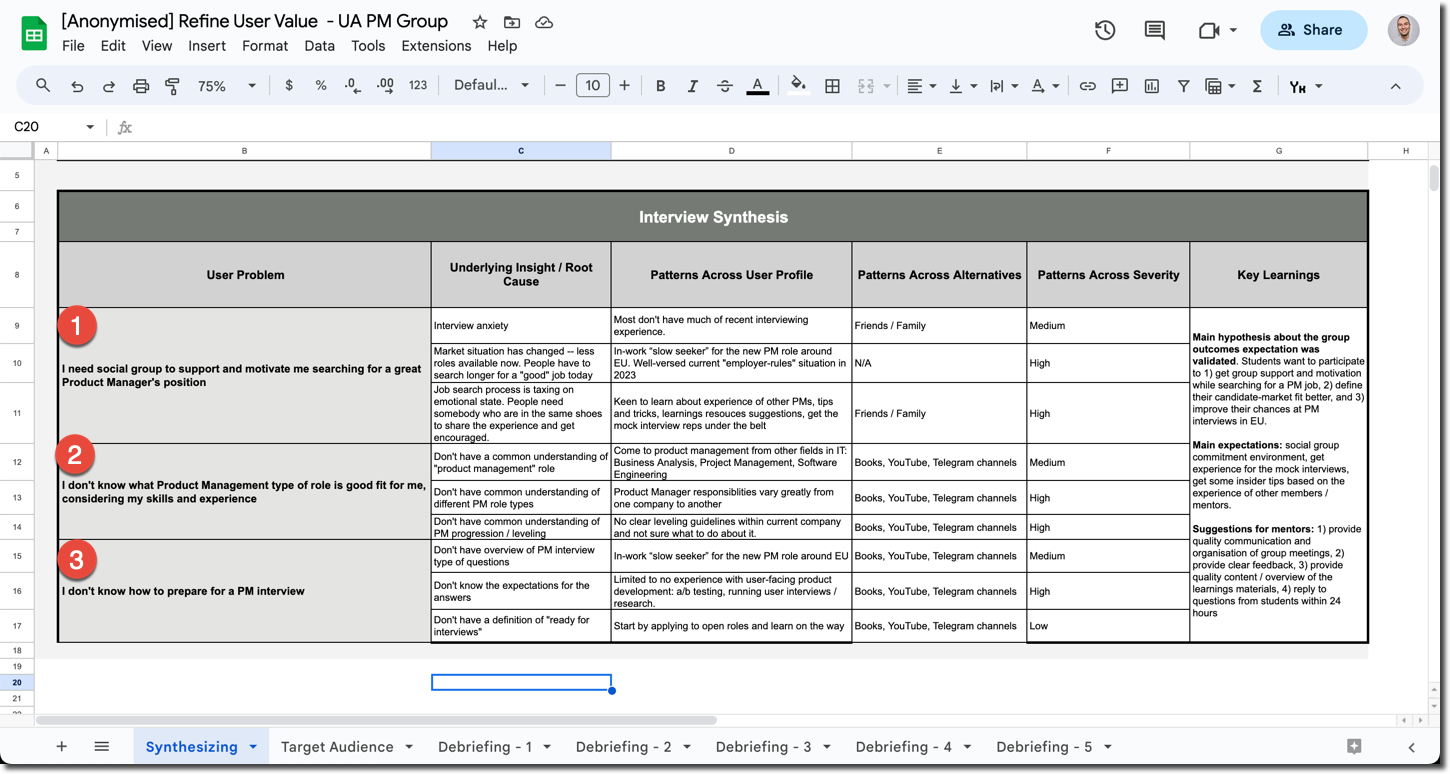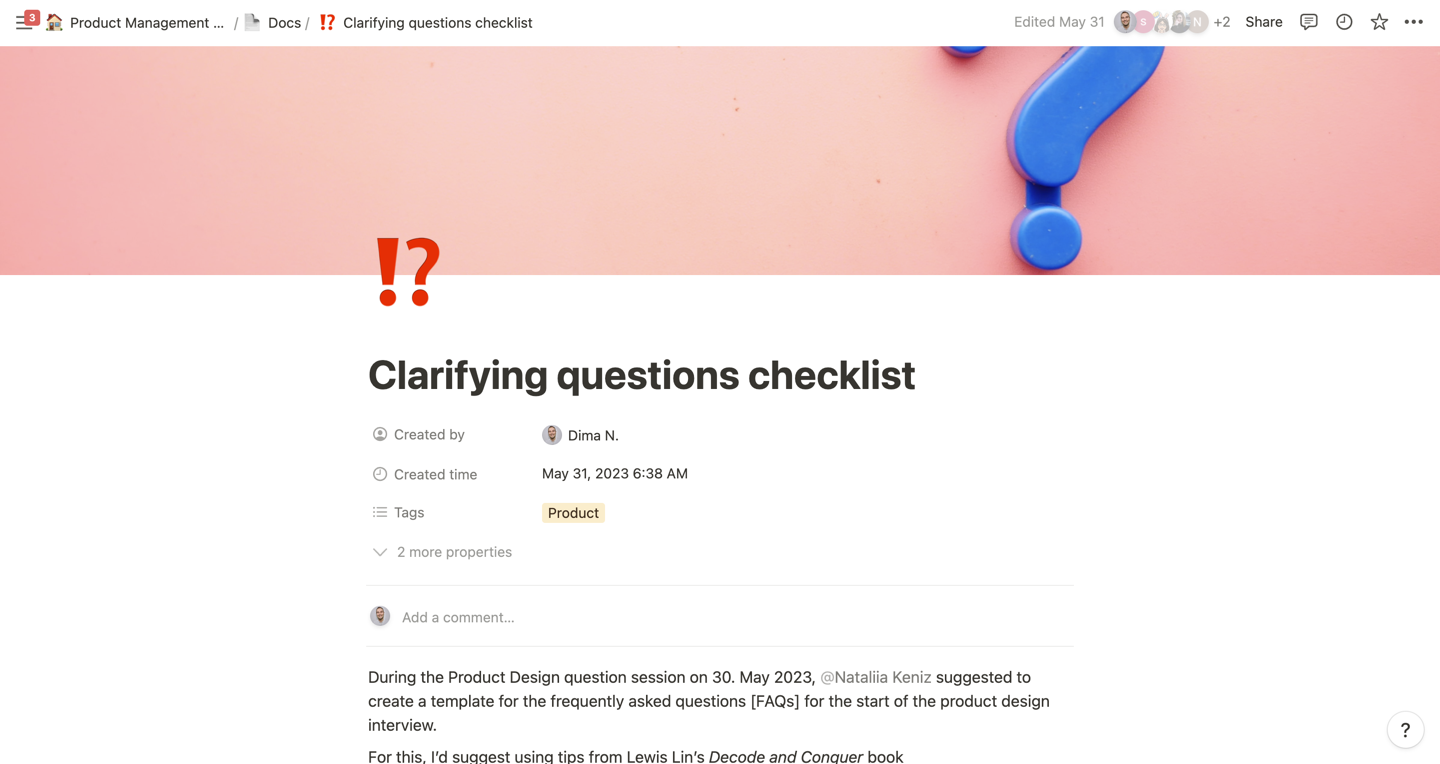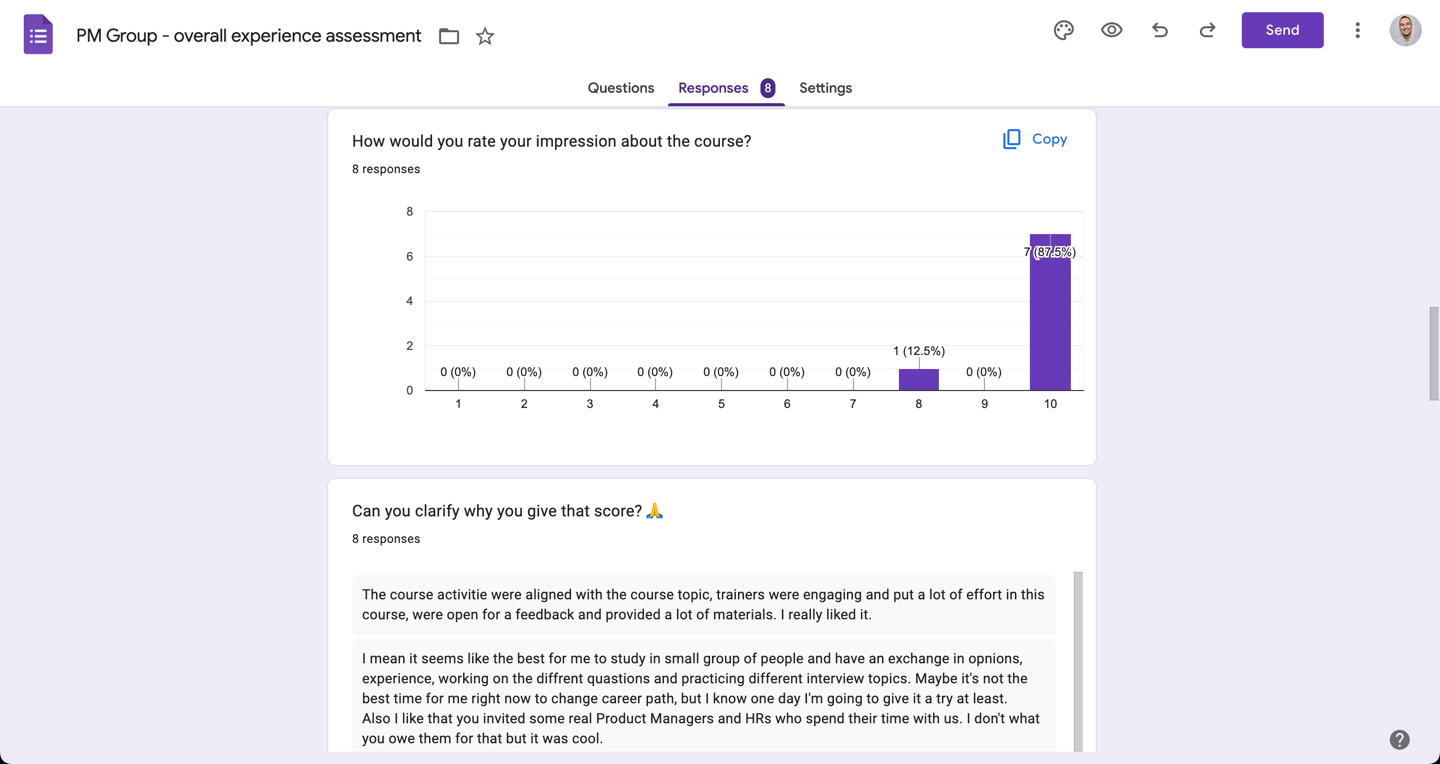How to run a Product management study group
In May 2023, Viktoria Kravchenko and I organised the study group about Product Management interviewing. Our students included 7 Ukrainian IT professionals – Business analysts, Software Engineers and Product Managers. The idea was to present what Product Management profession is and why it is an awesome career, plus mock-interview students to teach main types of PM interview questions.
Each participant paid 125 USD in total – 100 USD as a donation to the Ukraian Armed Forces and 25 USD to cover Notion and Zoom for the group. That’s a total of +700 USD spent to eradicate russian invadors from Ukrainian land. It’s not much but it’s honest work.
On 25. July 2023 we had the retrospective meeting with the group to review how much have we achieved over the course of the 2-month long study program. Results were overwhelmingly good:

If you want to improve your leadership skills and grow your professional network, organising small study groups like this one is just great! Below I want to summarise my personal highlights of the experience.
Start with the research
To make sure that the course materials and communication style matches the expectations of our students, I ran series of 5 interviews.
That took around 10 hours of work to prepare the interview script, schedule the calls, run and synthesise interviews. However, that was invaluable experience to understand students’ problems and aspirations before the start of the course. Besides that, student interviews helped to define the qualitative success metrics for the course:
- Improve student’s perceived support level during the job search process
- Improve students’ perceived understanding of the Product Management role and progression
- Improve student’s perceived understanding of Product Management interview process
You may access the anonymised version of the research documentation in this Google Spreadsheet. And, here’s the screenshot with the synthesis of the user research:

Set expectations for the group
Our intro session was a bit too much. We tried to fit into 1.5-hour session: round of personal introductions, review of the user research, review of the course plan and group charter. That ended up being 2 hour meeting after the work hours. It was painful. Don’t be like us! Mind the time and make sure your time management is on point.
Our students in the retro meeting suggested to move our the course plan review to the next meeting or simply to share it in writing in the shared chat.
In the meantime, the meeting did work well to set the expectations from students and clarify on the organisers’ commitments. We aligned that:
- Students have to attend all weekly meetings.
- Everyone should be helpful and respectful to one another
- and Organisers have to provide feedback on the questions in the chat within 24 hours or research the answer if they don’t know something
That worked like magic! We had all of the participants attending most of the meetings. If someone was missing, s/he made sure to notify the group beforehand.
Put in the work
Having success metrics, student problems and expectations defined, it’s just a matter of doing: writing short articles, putting together presentations and showing up at the arranged weekly sessions to make this study experience worthwile for all involved people.
I truly enjoyed the questions raised by students during the study sessions. Most of the times, I could answer those from personal experience from work or interviewing. Though, sometimes I actually needed to do some extra research to address concerns that I have not encountered before.
For instance, once I was asked if there are clarifying questions that you better ask during the PM interview. While I could not answer on the spot, it pushed me to write a short article for our students and actually synthesise my own understanding of the topic.

Seek feedback
Another important thing for such small study groups is getting feedback early. To make that happen, I was sending private messages to each student after each study session.

I used free Google Forms and asked for the anonymous feedback. That helped us to improve quite a lot in terms of the session time management and organisation, comparing to the start of the course.
Also, that’s simply heartwarming to get all the kudos for your work:
Dima was a knowledgeable basement for this course.
Thanks a lot to Dima, as an co-organizer of this course. Dima with his example, clearly set very high benchmark for the position of really good product manager. Dime gave really useful feedback during mocks, thanks to his knowledge and experience!
Well prepared Coaching, a lot of details in the feedback and very useful information was provided during the course. Open session with PdM and HR/Recruiter is Top! Great job!
Conclusion
To sum it up, organising and running small study groups is super rewarding experience. There’s really not a lot of drawbacks, except for the time commitment. You get leadership experience, lots of appreciation, get to expand your professional network and learn on the way. I will definitely organise more study communities like this in the future.